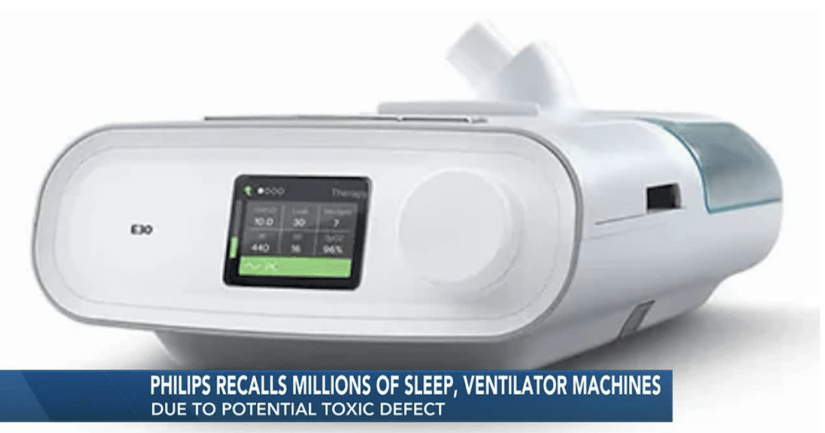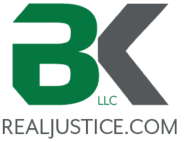
Sleep apnea affects countless people around the country. To relieve these health issues, many choose to use sleep apnea machines and they often choose brands they believe they can trust, such as Philips. However, even those “trusted brands” can let you down, as evidenced by the Philips recall. Here’s an update on the situation.
Table of Contents
Why Is Philips Recalling Sleep Apnea Machines?
Philips is one of the largest makers of sleep apnea machines, but they have had to recall millions of Respironics ventilators, BiPAP, and CPAP machines because they can cause health risks. It turns out that the devices are using polyester-based polyurethane foam as part of their construction. The foam helps to keep the machines quieter. However, the PE-PUR foam is toxic. Over time, the foam can start to degrade. When this happens, the toxic particles are released into the machine’s air pathway. This means that users could be inhaling the particles into their lungs. There is a danger that this could cause cancer. Let’s learn a bit more about the Philips CPAP recall.

Latest Updates on the Philips Recall
The Food and Drug Administration released an update to the recall of the ventilators, CPAP, and BiPAP machines on November 12, 2021. Earlier in 2021, Philips issued their recall of certain devices, which prompted the FDA to inspect the Philips Respironics’ manufacturing facility. The inspection from the FDA is used to:
- Review and evaluate records
- Check staff training
- Examine facility operations
- Look into production and testing of the devices
- Check the systems in place for quality control
The investigators wanted to know what might have caused the issues with the foam. They also looked to see what might have caused a breakdown in the manufacturing process that allowed for this to occur. After the review, Philips created a plan that would repair the foam that was included with the affected devices. They opted to use a different type of foam, which was silicone-based and that should not break down and cause issues. However, the FDA later discovered that the new type of silicone foam had been used outside of the United States in a device that failed a safety test. This safety test looked at whether the foam would emit volatile organic compounds, which it did.
What Advice Has Philips Given?
 After the updated report from the FDA, Philips advises patients to take different actions based on their condition. On their site, they say that patients who are using BiLevel PAP and CPAP devices should consult with their doctor on a suitable treatment plan. This is an update to their earlier guidance, which suggested that they stop therapy before consulting with their doctor. Those who have already talked with their physician say that there is no further action to take. For patients that are using ventilation that is sustaining their life, Philips, along with the FDA, says to continue with the required therapy. This was their stance from the start, and it has not changed with the update from the FDA. As always, patients should consult with their doctor if they have questions or concerns about the therapy they are receiving.
After the updated report from the FDA, Philips advises patients to take different actions based on their condition. On their site, they say that patients who are using BiLevel PAP and CPAP devices should consult with their doctor on a suitable treatment plan. This is an update to their earlier guidance, which suggested that they stop therapy before consulting with their doctor. Those who have already talked with their physician say that there is no further action to take. For patients that are using ventilation that is sustaining their life, Philips, along with the FDA, says to continue with the required therapy. This was their stance from the start, and it has not changed with the update from the FDA. As always, patients should consult with their doctor if they have questions or concerns about the therapy they are receiving.
Side Effects That Resulted in the Recall
Side effects from chronically inhaling toxic foam particles may include:
- Asthma
- Wheezing
- Decreased lung function
- Reactive Airways Dysfunction Syndrome (RADS)
- Headaches
- Shortness of breath
- Watery eyes
- Chronic bronchitis
- Dizziness
- Difficulty breathing
- Lung damage
- Nausea, vomiting
- Irritation (nose, eyes, throat)
- Dry cough
- Bronchial asthma
- Pulmonary Hypersensitivity
- Decreased pulmonary function
Get in Touch
If you or a loved one used one of the Philips recalled sleep apnea machines and are now suffering from the side effects listed above, contact BK Law today to speak with an experienced lawyer who can answer your questions, explain your legal rights, and evaluate your claim. We offer free, no-obligation consultations and represent all clients on a contingent fee basis, meaning you pay no out-of-pocket fees or costs unless we successfully resolve your claim.
Personal Injury Practice Areas
Car Accident
Truck Accident
Uber Accident
Scooter Accident
Bicycle Accident
Boating Accident
Medical Malpractice
Wrongful Death
Slip and Fall
Construction Accident
Jet Ski Accident
Workers Compensation
Catastrophic Injury
Pedestrian Accident
Pool Accident
Premises Liability
Bus Accident
Motorcycle Accident
Dog Bite Accident


